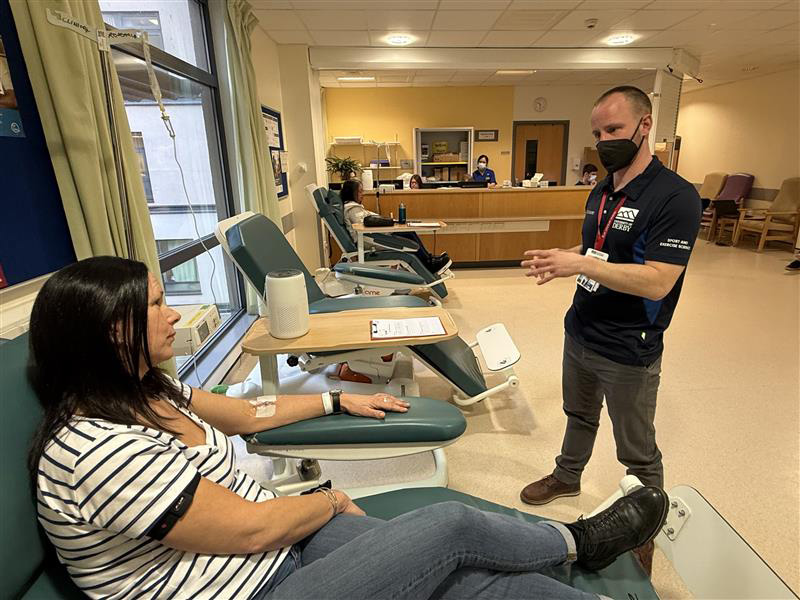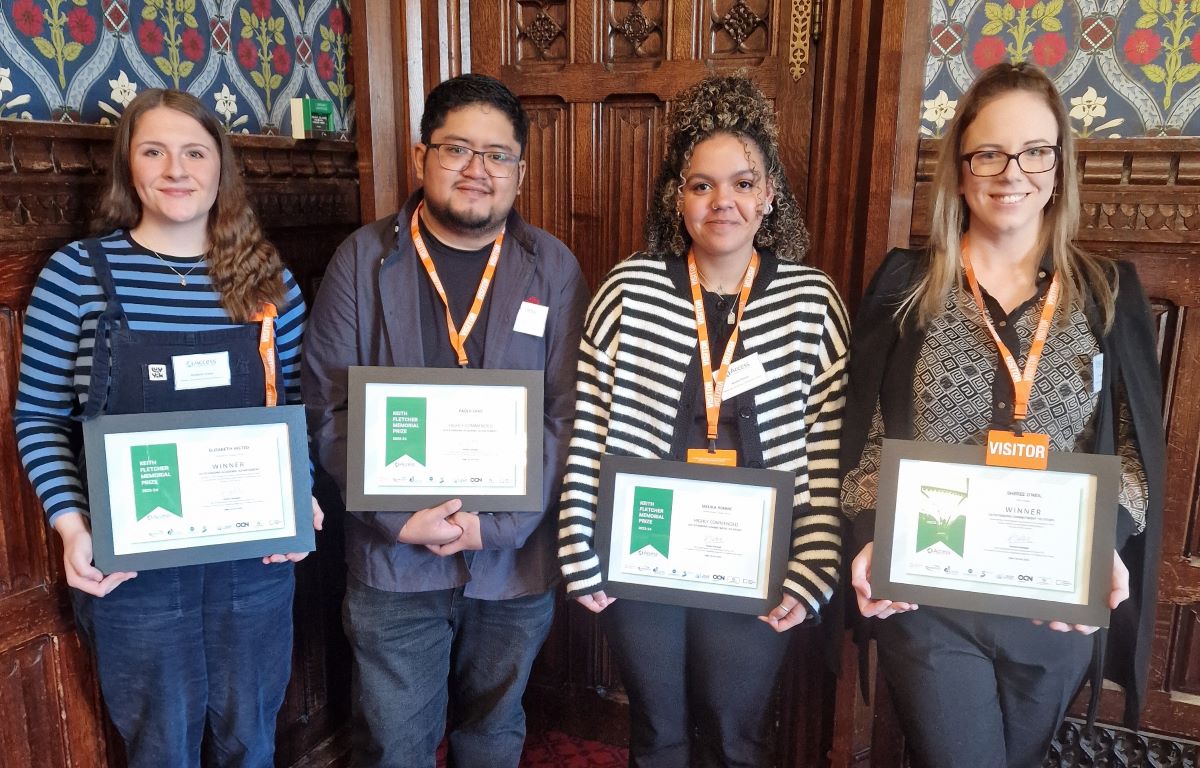New FE + Skills Collective report sets out recommendations to strengthen sector

A new report from the FE + Skills Collective, published today, highlights the crucial role of collaboration, innovation, and inclusivity in building a stronger Further Education (FE) and Skills sector. Titled Bridging the gap between policy and pedagogy: building a stronger FE and Skills system, the report reflects the shared insights of nearly 90 educators, leaders, employers, and policymakers who came together in Birmingham on 10 October 2024 for the FE + Skills Collective event, delivered in partnership by the Education and Training Foundation (ETF) and FE News.
The FE + Skills Collective aims to work together to align the sector with the Government’s five national missions: driving economic growth, advancing clean energy, improving public safety, creating opportunities, and delivering an efficient NHS. The report – produced by Dr Vikki Smith, Executive Director of Education and Standards at ETF, and Ben Rowland, Chief Executive at the Association of Employment Learning Providers (AELP) – highlights how the FE and Skills sector can lead the way in tackling skills shortages, fostering social mobility, and preparing learners for a rapidly changing workforce.
Key Themes and Recommendations
To enable cross-sector sustainable change that aligns with the Government’s missions, the report identifies six key areas for action.
- Collaboration: relationships between educators, employers, and policymakers must be strengthened to better align skills development with local and national priorities.
- Inclusivity: equitable access to education must be prioritised, particularly for learners from disadvantaged backgrounds and those with special educational needs and disabilities (SEND), to ensure every learner has access to opportunities for personal and professional development.
- Empowering educators: investment in continuous professional development (CPD) is vital to support teaching excellence and dual professionalism, which underpin high-quality teaching across the sector.
- Careers guidance: transforming the National Careers Service into an all-age, personalised service would help individuals to navigate career changes and transitions throughout their lives.
- Place-based approaches: enabling localised decision-making will address regional skills needs and reduce inequalities.
- Technology integration: the sector must embrace tools such as Artificial Intelligence (AI) to enhance teaching, streamline administration, and support hybrid learning environments.
The Collective’s Call to Action
The FE + Skills Collective challenges everyone involved in the sector to embrace these recommendations and lead their implementation with innovation and inclusivity. The report outlines a vision for building a self-improving system that responds to learners’ needs and creates meaningful partnerships with employers and policymakers.
Dr Katerina Kolyva, CEO at ETF, commented:
“This report delivers a blueprint for action. It is now down to us, the sector, to take these ideas forward. I am enthused by the energy and passion I have seen from colleagues across the sector in contributing ideas and recommendations to this report, and I look forward to working together to drive change for a stronger, more responsive FE and Skills system that aligns with the new Government’s mission-led approach.”
Dr Vikki Smith, Executive Director of Education and Standards at ETF, emphasised the importance of a collective approach:
“Our sector has untapped potential to lead change. This report provides practical steps to transform how we work and the difference we make. It also celebrates the power of collaboration and trust. By working together, we can meet the challenges facing the FE and Skills sector, ensuring it thrives as a cornerstone of economic growth and social mobility.”
Ben Rowland, co-author of the report and Chief Executive of AELP, reflected:
“AELP are pleased to have helped write this exciting FE + Skills Collective report which highlights the critical importance of relationship-based collaboration to address challenges in post-16 education. The report argues that FE and Skills leaders should foster trust, embrace learning over perfection, and encourage exploration of new technologies. This will help us to improve relationships, trust and collaboration across the sector in order to leverage our collective potential to find solutions while building a strong case for government investment.”
Gavin O’Meara, CEO of FE News, said:
“It was a privilege to be involved in this report. Thank you to everyone who took the time to share their views. The wisdom of the crowd is really powerful. I love that the report is not about solutions from just one lens, but from the people of the Collective. This means it is packed full of deep sector understanding, is solution-orientated and provides action points for the different parts of the FE and Skills ecosystem to come together and deliver the mission focus of our Government. We now have a blueprint to bridge policy and pedagogy for this next Government term, and for our educators and leaders now and in the future.”
Next Steps
The FE + Skills Collective will continue its work with ETF and other partners in fostering collaboration across the sector. By bringing together voices from education, industry, and Government, the Collective seeks to drive lasting improvements and strengthen the sector’s impact on learners, employers, and communities.
Sector Reaction
Olly Newton, Executive Director, Edge Foundation said:
“Edge were delighted to be involved in the FE Collective. With limited public resources it’s crucial that the FE and Skills Sector leads the way and finds its own solutions – the FE Collective is a brilliant example of how this can be achieved. We want to continue to see education leaders, employers, practitioners and students working together as we foster a culture of greater trust in the professionalism of the education sector.”
Yusuf Ibrahim, Assistant Principal – Higher Education, Academic Studies, Foundation and Adult Learning, Cardiff and Vale College said:
“It was an absolute pleasure to be part of the FE + Skills Collective Conference and the proceeding report has highlighted a fundamental necessity in moving our skills strategy forward: the need for colleges, training providers, schools, and universities to collaborate more closely with each other and with industry.
“In a turbulent global climate, it is essential that we foster stronger partnerships to ensure that educational outcomes are more closely aligned with the evolving needs of the economy. Bridging the gap between theoretical knowledge and practical skills, making students more employable and better prepared for the workforce.
“Policy and funding must drive practice to enable educational institutions to better understand industry trends and technological advancements, ensuring that curricula remain relevant and forward-thinking. A unified approach involving educators at all levels and industry leaders will drive innovation, enhance the quality of education, and support the development of a skilled, adaptable workforce ready to meet the challenges of the future.”
Lou Doyle, Chief Executive of Mesma said:
“I’m delighted to see the FE and Skills Collective continue to go from strength to strength. When I look at the summary and recommendations through the lens of my native north east, I can see our region reflected in the output. That’s important as it isn’t always the case. In particular, I welcome the recognition of the criticality of place-based education and support, designed and delivered by those who understand the needs of local communities.
“Education does not exist in a vacuum from other services, therefore the call to policymakers to move us back from the cliff edge we face to meet the demands of young people and adults currently caught in the turmoil of a broken SEND system is one we must focus our attention on in the coming years to enable people to have satisfaction in both life and work. Let’s keep the conversation moving.”
Chris Cherry, from Red Cherry Projects said:
“This report sets out a clear message that the sector should embrace the changes and opportunities that technology can bring. We must be brave and fearless in challenging the priorities and systems that are set up to meet them. We can put the power in the hands of those that have the skills and experience to maximise the resources available and focus our effort on local and regional need, where local knows best. I’m hopeful and optimistic for the future.”
David Hughes, Chief Executive of the Association of Colleges (AoC) said:
“The new report from the FE + Skills Collective is a timely reminder of the determination and passion of those in the FE to make a difference and contribute towards making sure our sector delivers for all learners, no matter what their circumstances are.
“It is right to highlight the fundamental role FE has to play in the government’s five missions, and how colleges can lead the way in tackling skills shortages, fostering social mobility, and preparing learners for a rapidly changing workforce.
“As AoC we recognise the six recommendations put forward in the report, and we are committed to supporting our members to collaborate inclusively with others, ensure their staff develop and grow, offer solid careers guidance to students, embrace technology where appropriate, and ensure they have a key role in place-based decision making.”
Ben Blackledge, Chief Executive, WorldSkills UK said:
“The FE + Skills Collective has set out a comprehensive action plan, rightly recognising the importance of collaboration between industry and education as a critical element in enabling the sector to meet today’s demands and prepare for future challenges through sustainable growth and innovation.
“Through our work with NCFE on the WorldSkills UK Centre of Excellence, we have seen firsthand the impact of innovative CPD in motivating educators and fostering high-quality teaching. By sharing the latest global training insights from our participation in WorldSkills, we are proud to have supported over 10,000 educators in embedding world class techniques into their teaching, benefiting nearly 200,000 learners.
“At WorldSkills UK, we are committed to play our part in helping educators access the right training, development and networks, so that more young people are emerging from FE and apprenticeships highly skilled, confident and ready for work.”
Jennifer Coupland, chief executive of the Institute for Apprenticeships and Technical Education, said:
“It was a great pleasure to join the FE and Skills Collective and think seriously about how to make the system fit for future generations. We have come a really long way with raising national standards of apprenticeships and technical education, through listening to thousands of employers about their skills needs. I’m hopeful that that will continue through Skills England and that Skills England’s wider remit will enable it to work more closely with devolved authorities to support them in delivering at local level to connect people to skills and employment opportunities. This can only be achieved through outstanding partnerships with MCAs, the FE and HE sectors, awarding organisations and local businesses.
“We must keep improving how we track skills needs and provide careers’ advice to support people onto the right courses for rewarding careers. I can see artificial intelligence (AI) playing an increasingly important role with this, for example through tracking skills requirements from millions of job adverts and feeding that much more quickly into National standard setting. Such innovative tech solutions should build from the Occupational Maps we already have in place, which have focused how we organise and present training and career opportunities into 15 clearly defined occupational routes that Mayoral Combined Authorities are signing up to. These are exciting times for skills training and this report provides many constructive and useful reflections on how to build on progress made and innovate to achieve great outcomes for learners and businesses across the country.”
Collective Reflective Livestream
Here is the video from the FE + Skills Collective Reflective, with the Report co-authors Dr Vikki Smith from ETF and Ben Rowland, CEO of AELP:











Responses